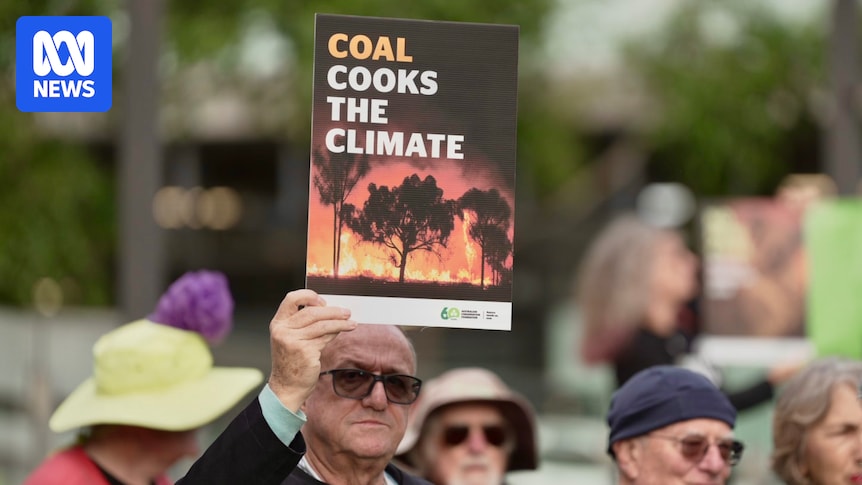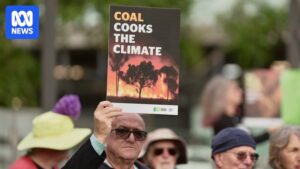
A pivotal legal challenge by conservation groups aiming to halt one of Australia’s largest proposed greenfield coal projects has commenced in Queensland’s Land Court. The Australian Conservation Foundation (ACF) and Mackay Conservation Group (MCG) have formally objected to Whitehaven Coal’s Winchester South open-cut coal mine, situated in the Bowen Basin.
The contentious $1 billion project, designed to produce up to 17 million tonnes of coal annually over a 28-year lifespan, has sparked significant environmental and human rights concerns. Conservationists argue that the mine’s approval would lead to severe ecological damage and exacerbate climate change impacts.
Environmental Concerns and Human Rights Implications
The proposed open-cut mine, located 30 kilometers southeast of Moranbah, would primarily extract metallurgical coal, essential for steel production, alongside thermal coal. The project includes the construction of a coal processing plant and a rail loop to connect with the existing Bowen Basin coal rail network.
ACF and MCG contend that the court should recommend against granting a mining lease and environmental authority due to the mine’s projected environmental footprint. ACF’s climate and energy project manager, Gavan McFadzean, highlighted the project’s potential to generate at least 583 million tonnes of climate pollution.
“It’s a coal project that will emit more emissions than Australia does in an entire year,” McFadzean stated outside the court in Brisbane. “New coal projects simply cannot be approved if we’re to stay within a 1.5 degree [Celsius] pathway.”
MCG climate campaigner Imogen Lindenberg emphasized the need to shield local communities from climate change impacts, stating, “We are already living in a time of climate catastrophes, we can’t afford to keep making the same mistakes again and again.”
Whitehaven Coal’s Defense and Economic Arguments
In defense of the project, Whitehaven Coal argues that the Winchester South mine would support 500 jobs during its construction and operational phases. Whitehaven’s barrister, Saul Holt KC, asserted that the project was the “right project, in the right place, by the right miner, at the right time,” emphasizing its economic benefits and community support.
Holt noted that the project had backing from the Barada Barna people, the area’s traditional owners, and claimed “widespread community support.” He pointed to the strong demand for metallurgical and thermal coal, highlighting the mine’s potential economic contributions to Queensland.
“It promises considerable economic benefit to the local community and the people of Queensland,” Holt stated, noting that 60% of the coal mined would be metallurgical and 40% thermal.
Comparisons and Legal Precedents
The case draws attention to recent legal precedents, such as the 2022 Queensland Land Court ruling, which found that human rights would be unjustifiably limited by a different coal project proposed by Waratah Coal. Whitehaven’s legal team argues that their project is distinct, primarily focusing on metallurgical coal.
ACF and MCG’s barrister, Emrys Nekvapil SC, countered that regardless of the type of coal, its extraction would still contribute to environmental harm. “For the present point, metallurgical and thermal coal is all coal,” he remarked, emphasizing the cumulative environmental impact.
Future Implications and Approval Process
The Land Court hearing is expected to span at least seven weeks, with Judge Nicholas Loos set to visit the proposed mine site. The court will ultimately recommend whether the mine should be approved or refused, with the Queensland government making the final decision.
Currently, the project is undergoing a comprehensive approval process. The state’s coordinator general recommended the project proceed in 2023, subject to certain conditions. In 2024, the Queensland Department of Environment, Science and Innovation approved the mine’s Environmental Authority application.
However, Whitehaven Coal still requires an Environmental Authority and mining lease from the state government. The federal government will make the ultimate decision on whether the project receives the green light.
This legal battle underscores the ongoing tension between economic development and environmental conservation, a debate that continues to shape the future of Australia’s energy landscape.





